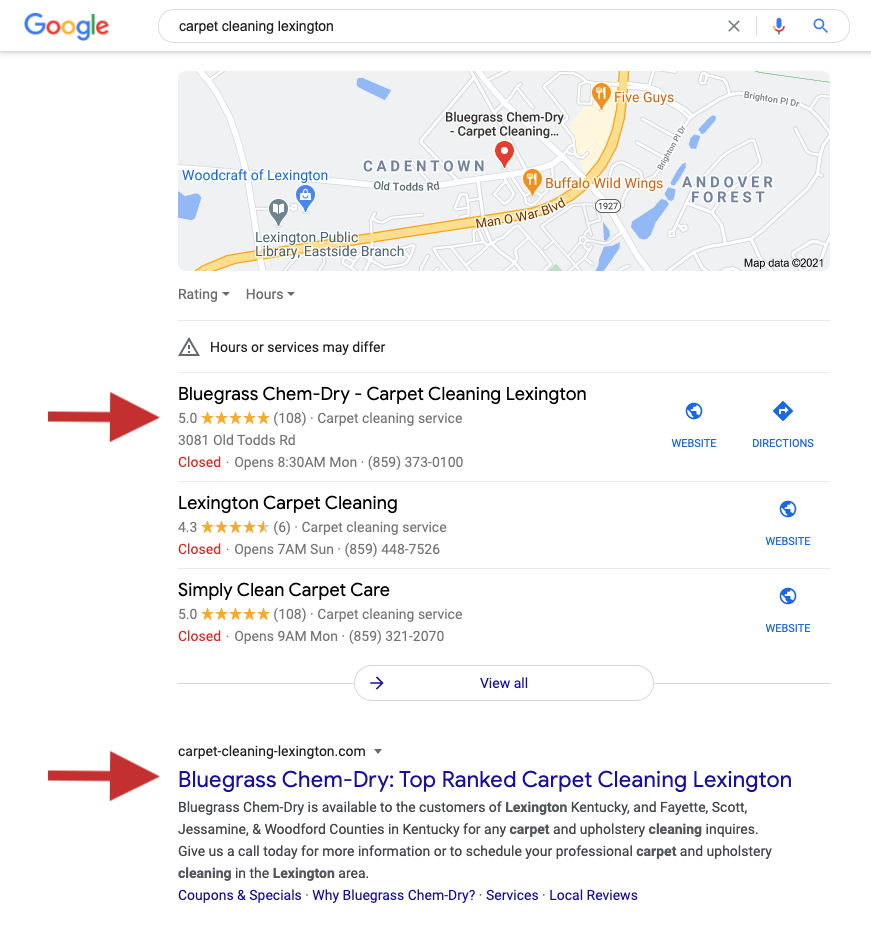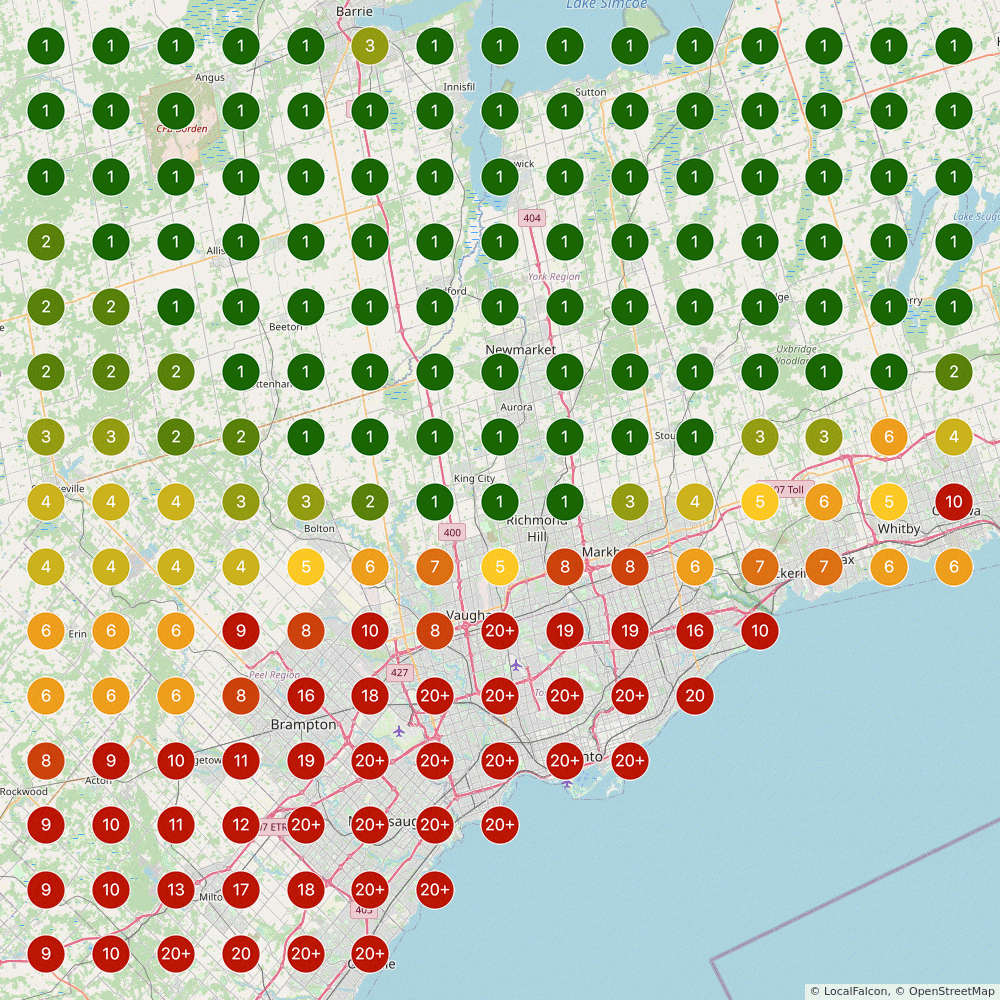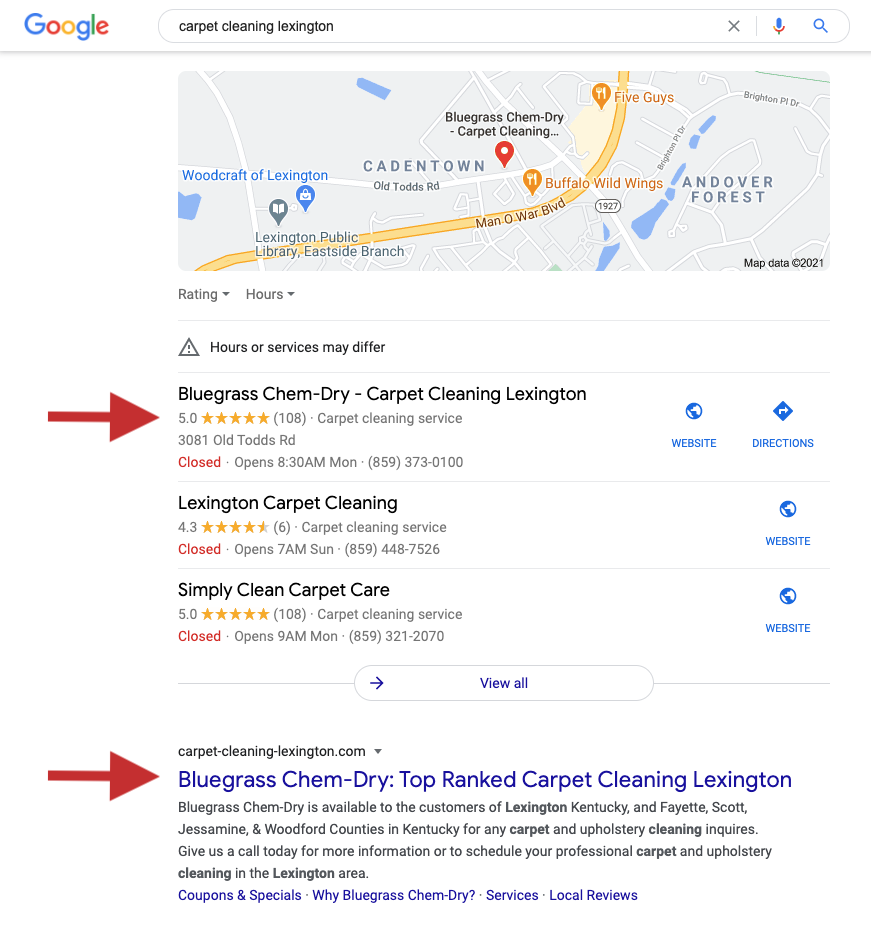Organic SEO is an essential tool for companies aiming to augment their web presence and generate specific visits to their websites. By implementing a well-rounded strategy, companies can achieve higher rankings on search engine results pages (SERPs) and increase organic traffic. In this blog post, we will explore the various aspects of organic SEO strategies necessary for businesses to achieve higher rankings and increased website traffic.
We’ll begin by discussing the importance of keyword research in targeting growth and how it lays the foundation for content creation based on relevant keywords. Next, we’ll explore effective on-page optimization techniques that enhance user experience and contribute to better search engine rankings.
As you continue reading, you will learn about conducting comprehensive keyword research using advanced tools like SEMrush, creating high-quality targeted content through various formats such as blogs, infographics, and videos, as well as enhancing user experience with multimedia elements and strategic interlinking. Finally, we’ll touch upon monitoring your organic SEO performance using key performance indicators (KPIs) and making data-driven adjustments to optimize your strategy further.
Table of Contents:
- Understanding Organic SEO Services
- Keyword Research for Targeted Growth
- Content Creation Based on Relevant Keywords
- On-Page Optimization Techniques
- Conducting Effective Keyword Research
- Creating High-Quality Targeted Content
- Enhancing User Experience with Multimedia & Interlinking
- Monitoring & Adjusting Your Organic SEO Strategy
- FAQs in Relation to Organic Seo Services
- Conclusion
Understanding Organic SEO Services
Organic SEO services aim to improve your website’s visibility and drive more organic traffic without relying on paid advertising.
Keyword Research for Targeted Growth
Keyword research, a fundamental part of any SEO plan, can be aided by tools like SEMrush to uncover pertinent keywords related to your field.
Content Creation Based on Relevant Keywords
Create engaging blog posts and articles that address user intent and incorporate multimedia elements like images and videos to boost engagement and improve dwell time.
- Crafting Engaging Blog Posts/Articles: Provide value by addressing common questions or concerns users may have about the topic.
- Incorporating Multimedia Elements: Enhance user experience by adding images or videos within written content.
On-Page Optimization Techniques
On-page optimization ensures that your website and content are easily accessible to both users and search engine crawlers.
- Title Tags & Meta Descriptions: Ensure each page has unique title tags and meta descriptions containing relevant keywords.
- URL Structure: Optimize URLs by including target keywords, keeping them short, descriptive, and easy to read.
- Heading Tags (H1-H6): Use heading tags appropriately throughout your content for better readability.
“Boost your website’s visibility and drive organic traffic with effective keyword research, engaging content creation, and on-page optimization techniques for #OrganicSEOServices. #SEOstrategy #DigitalMarketing”Click to Tweet
Conducting Effective Keyword Research
Want to rank higher on search engines? Start with keyword research using tools like SEMrush.
Discovering New Keywords with SEMrush
SEMrush can help you find high-potential keywords with little competition and estimate potential traffic gains from targeting them.
Analyzing Competitors’ Strategies
Examine competitors’ content structure and targeted terms to develop a comprehensive strategy tailored specifically to outperform them.
Selecting Long-Tail Keywords with Low Competition
- Long-Tail Keywords: Targeting longer phrases with lower search volumes but higher conversion rates allows you to rank faster while attracting highly qualified leads.
- Low Competition: Focusing on less competitive terms means there’s a greater chance of ranking higher within SERPs.
By effectively conducting keyword research, you’ll improve the visibility of your website, drive more targeted traffic, and increase sales or conversions.
“Boost your website’s visibility and attract highly qualified leads with effective keyword research using tools like SEMrush. #OrganicSEO #DigitalMarketing”Click to Tweet
Creating High-Quality Targeted Content
Targeted keywords are key, but creating valuable content in various formats like blog posts, product pages, case studies, infographics, and videos is essential for organic traffic and niche authority.
Crafting Engaging Blog Posts/Articles
Engage readers with storytelling and actionable insights using the AIDA formula (Attention, Interest, Desire & Action) and relevant keywords.
Optimizing Service/Product Pages
Clear headings, concise descriptions, unique selling points, customer testimonials, and social proof elements boost credibility and conversions.
Showcasing Success Stories via Case Studies
Tell a story that demonstrates tangible results achieved through your services/products while incorporating relevant keywords naturally throughout the text.
Designing Informative Infographics
Present complex information visually with keyword-rich captions and annotations.
Producing Optimized Video Content
Optimize video content with relevant keywords, video transcripts, appropriate tags/categories, and hosting on platforms like YouTube or Vimeo for additional exposure.
“Boost your website’s organic traffic and niche authority with high-quality content, engaging blog posts, optimized pages, success stories, infographics & videos. #OrganicSEO #DigitalMarketing”Click to Tweet
Enhancing User Experience with Multimedia & Interlinking
Boost engagement levels and dwell time by incorporating multimedia elements like images or videos into your content and adding internal links throughout.
Incorporating Images/Videos into Written Content
Use relevant media to break up large blocks of text and keep visitors engaged longer on your site.
Utilizing Alt Image Text and Titles for SEO
Optimize images for SEO by adding descriptive alt tags and appropriate titles.
Effective Internal Linking Strategies
Connect related pages within your site to help users discover more content and improve their overall experience.
Here are some tips for effective internal linking:
- Use descriptive anchor text.
- Link to relevant pages within the body of your content.
- Avoid over-optimizing by using a variety of anchor texts.
Incorporating multimedia elements and interlinking effectively will enhance user experience and contribute positively towards your organic SEO efforts.
“Boost your website’s organic SEO with multimedia and interlinking. Enhance user experience, engage visitors longer, and optimize images for better results. #SEOtips #digitalmarketing”Click to Tweet
Monitoring & Adjusting Your Organic SEO Strategy
Keep your organic SEO strategy on track by monitoring search rankings, traffic growth, and conversions, and adjusting your approach accordingly.
Track Essential KPIs
Use tools like Google Analytics or SEMrush to monitor organic search traffic, bounce rate, average session duration, and conversion rates.
Analyze User Behavior
Examine user behavior patterns to optimize content based on actual visitor preferences, using tools like Google Analytics.
- User Flow Reports: Visualize how users navigate through your site and identify potential bottlenecks or drop-off points.
- Audience Segmentation: Break down analytics data by demographics, location, language settings, and device types to tailor content more effectively.
- Goal Tracking: Set up custom goals within Google Analytics to track specific actions or events and measure their success rates over time.
Make Necessary Adjustments
Tweak page titles, meta descriptions, image sizes, and internal links to improve search rankings and drive higher levels of organic traffic towards your site.
Remember that SEO is an ongoing process requiring continuous monitoring and fine-tuning, so stay proactive in analyzing data insights to ensure long-term success.
“Boost your website’s search rankings with organic SEO services. Monitor KPIs, analyze user behavior, and make necessary adjustments for long-term success. #SEOstrategy #organictraffic”Click to Tweet
FAQs in Relation to Organic Seo Services
What are organic SEO services?
Organic SEO services improve a website’s visibility in search engine results pages (SERPs) through natural, non-paid methods like keyword research, content creation, on-page optimization, and technical SEO adjustments.
Is organic traffic good for SEO?
Yes, organic traffic indicates that users find your website valuable and relevant to their search queries, leading to increased credibility and trustworthiness among search engines.
Is SEO considered organic?
SEO encompasses both organic and paid strategies, with organic SEO referring specifically to practices aimed at increasing a site’s visibility in unpaid or “natural” search results.
What is the goal of organic SEO?
The primary goal of organic SEO is to improve a website’s ranking in SERPs by optimizing its content, structure, design elements, and overall user experience, ultimately driving more targeted web traffic that can result in conversions.
Conclusion
Organic SEO services are a must-have for any business that wants to boost their online visibility and attract targeted traffic.
Effective keyword research is crucial for optimizing your website’s content and ranking higher on search engine results pages (SERPs).
Creating high-quality content that engages your audience and provides value is key to improving your website’s SEO.
Enhancing user experience with multimedia such as images and videos, and interlinking relevant pages on your website can also help improve your SEO.
Regularly monitoring your SEO strategy and making adjustments as needed is important for long-term success.
When looking for a marketing agency that offers website design and SEO services, make sure to choose one with a proven track record of success in the industry.
By partnering with the right agency and implementing effective organic SEO strategies, you can achieve long-term growth and reach your business goals.




